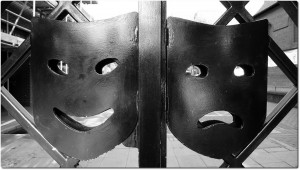What is Bipolar Disorder?
 Bipolar disorder is a condition that was previously referred to by the medical community as manic depression or manic depressive disorder. If you suffer from bipolar disorder and it is left untreated, this severe mental illness can damage your career, your relationships, your family, your friendships, and may even cause dangerous behavior and thoughts of suicide. It is highly recommended to seek bipolar residential treatment so that you may improve your life and end some or all of the suffering involved with the disorder.
Bipolar disorder is a condition that was previously referred to by the medical community as manic depression or manic depressive disorder. If you suffer from bipolar disorder and it is left untreated, this severe mental illness can damage your career, your relationships, your family, your friendships, and may even cause dangerous behavior and thoughts of suicide. It is highly recommended to seek bipolar residential treatment so that you may improve your life and end some or all of the suffering involved with the disorder.
Bipolar is identified by mood changes that are extreme in nature and frequently alternate between wide-ranging poles (mood levels). The fluctuation between depression (extremely “down” moods), normal moods and mania (extremely “up” moods) can result in a variety of other issues in your life.
The manic stage of bipolar disorder refers to a period that is marked by restlessness, excessive energy, talkativeness, and euphoria. Sometimes this period may also be accompanied by strong and powerful feelings.
After this period, the bipolar disorder causes the person’s mood to evolve into a darker stage where feelings of sadness, hopelessness, confusion, irritation and anger can begin to take place. Depression is often reported during this period which can be associated with sleep loss or excessive sleep, loss of energy or pleasure, crying and a feeling of worthlessness.
What are the Different Types of Bipolar Disorder?
Several types of bipolar disorder exist with common characteristics and a few distinctions. Each one involves manic and depressive episodes on some level.
Bipolar I disorder entails extreme mood swings, from excessive mania to deep depression. Bipolar II disorder is not as severe and entails episodes of less intense depression in tandem with hypomania. Cyclothymic disorder is related to mood swings that are yet milder in nature.
Mixed bipolar is a unique form of bipolar disorder in which the sufferer experiences the depressive and manic poles either at the same time or in rapid succession.
Residential treatment centers for bipolar will help you by identifying the type of bipolar disorder you may have and suggesting treatment options.
What Causes Bipolar Disorder?
The causes of bipolar disorder are not entirely understood by the medical community. Over time, the understanding of the span of levels of the illness has been increasing – including greater insight into the moods that exist in between the manic highs and depressive lows.
Researchers do believe there is evidence that bipolar disorder may be hereditary, although evidence suggests that lifestyle and environment may affect how severely the disorder manifests itself. Drug and alcohol abuse or life situations that produce a great deal of stress may impede the treatment process for bipolar disorder.
Treatment Options for Bipolar Disorder
For this condition, you may find it beneficial to try some of the treatments bipolar treatment centers offer. The focus of treatment is to suppress the existing symptoms until the point at which remission begins to occur.
One of the traditional options to treat bipolar disorder is to take medications like lithium, which is considered a mood stabilizer. Alternatives to medications such as lithium are atypical antipsychotics, which have become the mainstay in recent years. It is worth noting that such atypical antipsychotics also bring about a new, greater set of side effects with them.
Self-help and psychotherapy are approaches that have also proven effective for certain individuals who are suffering from bipolar disorder. Antidepressants and other medications may be prescribed to treat the condition.
How Do Residential Treatment Centers Treat Bipolar Disorder?
Residential treatment centers may take a holistic approach where the entire person is treated at once. It is the goal of such treatment to address not only the problem or disorder diagnosed but to discover and fully address its root causes.
Doctors and other professionals with extensive experience on issues such as bipolar disorder may be able to make a determination on what treatments and medications should be administered for a particular patient. Each case is unique and differently and must be treated appropriately as such.
In addition to therpy and medication, bipolar disorder can also be addressed through remedies such as: meditation, art therapy, yoga and other combinations of carefully selected healing stimuli.